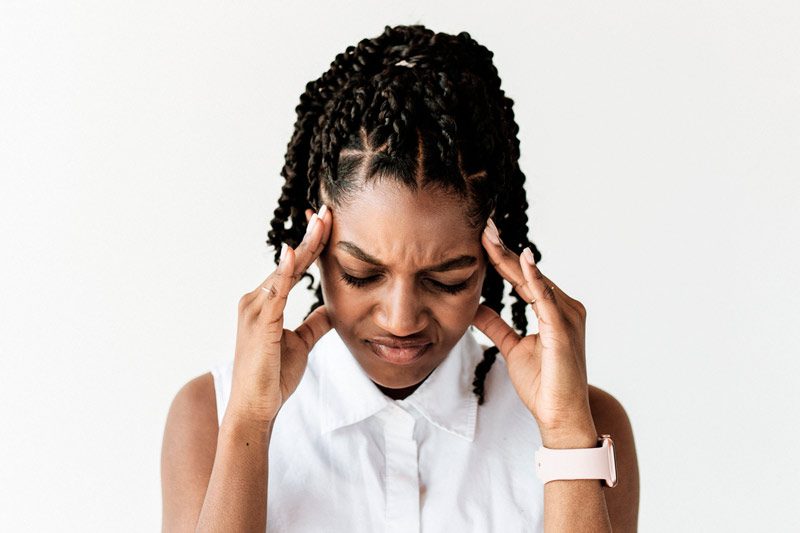Have you ever felt that you are too tired to even get out of bed? All you want to do the entire day is just sleep. Is your life hectic? Do you feel you cannot take it anymore? If yes, you need to take a good look at what is going on with you. You are going through something that is not right, and it’s troubling you. But how do you know whether it is burnout or depression?
What is burnout?
Burnout is a feeling of extreme stress and exhaustion. These are a few signs of burnout
- You feel stressed all the time
- You know what is stressing you out. Usually, there is a single thing that is causing this mental pressure.
- This thing that is stressing you out has taken over your life, and it’s all you can think of.
- You feel you have lost all motivation or interest in doing that thing. It feels like you have given your everything and still failed.
- You have a feeling that you are empty inside. You don’t want to do anything and don’t care what will happen.
Mostly, we talk about burnout in the context of work. However, it is not restricted to your job. You may “burn out” in other areas of life as well.
- Marriage – You may burn out if you feel you are in a very unstable marriage.
- Taking care of a sick person – Taking care of a person for an extended period can be very tiring.
- Parenting – Taking care of children can become very stressful at times. If you have little or no support, things might be even more difficult.
Know what depression and burnout have in common
Although depression and burnout are different, a few things are the same. We’ll discuss the difference between depression and burnout in a bit but first, let’s understand how they are similar. Some common signs between depression and burnout are
- exhaustion
- reduced interest and activity level
- feeling that you have failed (especially at work)
- high level of stress
- feeling anxious all the time
- sleep problems
- headaches
- cannot concentrate on work
- forgetting things – memory issues
- increased alcohol consumption
- tiredness
Know whether you have burnout or depression
Depression and burnout can look very similar to each other. However, it is essential to know how to distinguish between the two.
1. Source of the feeling
The main difference between the two is the source of the feeling. In other words, depression is focused inwardly on yourself. You feel you as a person are “not good” or “a failure.” In contrast, burnout is directed at something outside of you. For example, you get burned out because of a demanding job.
2. Single source
You can know whether you have depression or burnout based on the ease with which you can pinpoint the source. In depression, the sadness you feel is more general. You cannot tell exactly “why” you are depressed. It is not clear. Whereas, in burnout, there is a clear and single source. You can confidently say what has caused your stress.
3. Duration of symptoms
Depression can last much longer than burnout. You might have burnout for the time since the single stressor has started affecting your life. Depression can be for a longer time. Some people, who have a mood disorder or severe depression, might have to fight depression throughout their life.
4. Affected area of life
Burnout affects only one area of life. For example, if you are burned out due to work, it mainly affects your professional life. Burnout is seen very commonly in people who work in the health care sector. Nurses, doctors, counselors, first responders, etc., are more likely to go through burnout.
On the other hand, in depression, you will undergo a change in every area or aspect of your life. Your work or studies will suffer. It can cause disturbances in your relationships. Additionally, it can cause problems with your spouse, family members, friends, co-workers, etc.
5. Treatment – how it is managed
It is good to know whether you have depression or burnout, as it can help you deal with it the best way possible. For treating depression, you have to see an expert. You need to consult a mental health professional and undergo therapy. You might even have to take medication if needed. Burnout, on the other hand, is more simply treated. You can manage or overcome burnout by doing these things:
- Take a break! Spend some time away from the things and situation that is making you feel this way. Go for a vacation or plan a trip.
- You can remove your stressor. For example, reduce the amount of work you have to do or learn to delegate work to someone else to lessen your burden.
- You can increase your energy level by changing your diet, getting good sleep, or doing things that make you happy.
- Switch off from work or stressful things now and then. Plan ahead to make time for doing something fun or meeting friends. Make it a part of your routine.
- Finally, pay attention to yourself. Enjoy a spa day! Go for a candlelight dinner with your spouse! Set up a picnic with your kids! Or simply read a good book!
Know the main difference between burnout and depression
- How do you see yourself?
- Are you feeling helpless?
- Do you think about suicide?
Think about these points. If you have depression, you will agree or reply “yes” to these questions. So, in depression, you will have
- low self-esteem
- feelings of helplessness
- thoughts about suicide
Whereas in burnout, you know that you are okay. You have healthy self-esteem and you know you can do something about your life. You want to get better, and there is hope you can. Also, you have no thoughts of ending your life—you just want to get rid of the stress and feel better again!
In conclusion, both depression and burnout are related to each other. There are many common signs and features that make them look pretty similar. Also, in both conditions, you have a negative state of mind. But in depression, this negative state of mind is related to all areas of your life and includes low self-esteem and feelings of hopelessness. In contrast, burnout is temporary, can be managed much more easily, and is about a specific area of your life. This negative state of mind is about stress and exhaustion.
Understand how depression and burnout differ, and you will know how to manage how you are feeling in the best possible way!
If you or someone you know experiences mental health issues, it is important to seek help from a qualified professional. Our Resource Specialist can help you find expert mental health resources to recover in your community. Contact us now for more information on this free service to our users.

Image by www.rawpixel.com
The opinions and views expressed in any guest blog post do not necessarily reflect those of www.rtor.org or its sponsor, Laurel House, Inc. The author and www.rtor.org have no affiliations with any products or services mentioned in the article or linked to therein. Guest Authors may have affiliations to products mentioned or linked to in their author bios.
Recommended for You
- How a Health Cleanse Can Reset Your Body and Mind - April 16, 2025
- The Truth about Relapse in Addiction Recovery - April 14, 2025
- The Power of Peer Support in Mental Health Recovery - April 10, 2025





